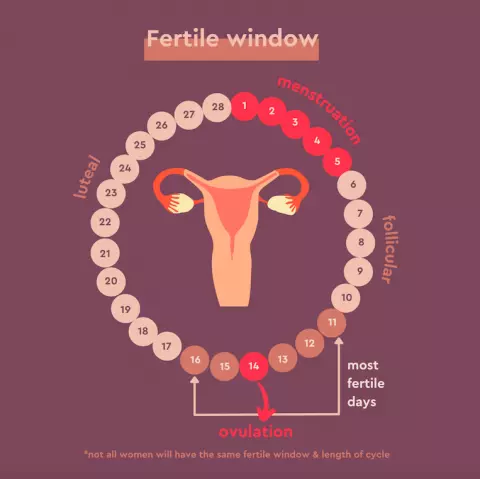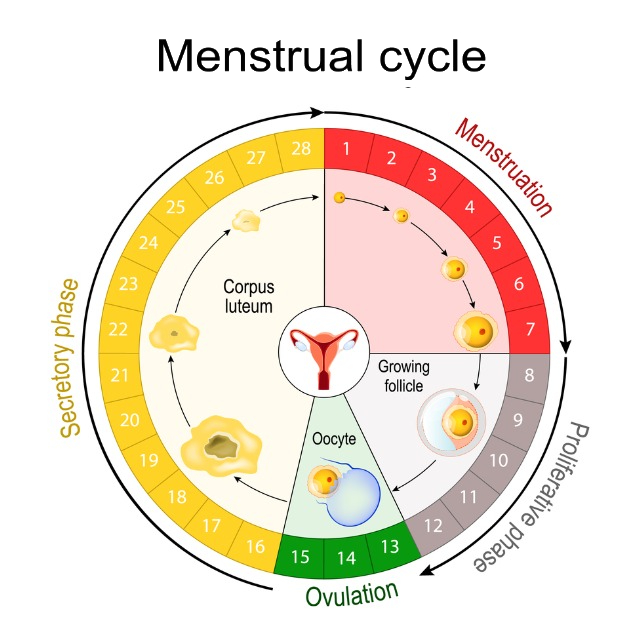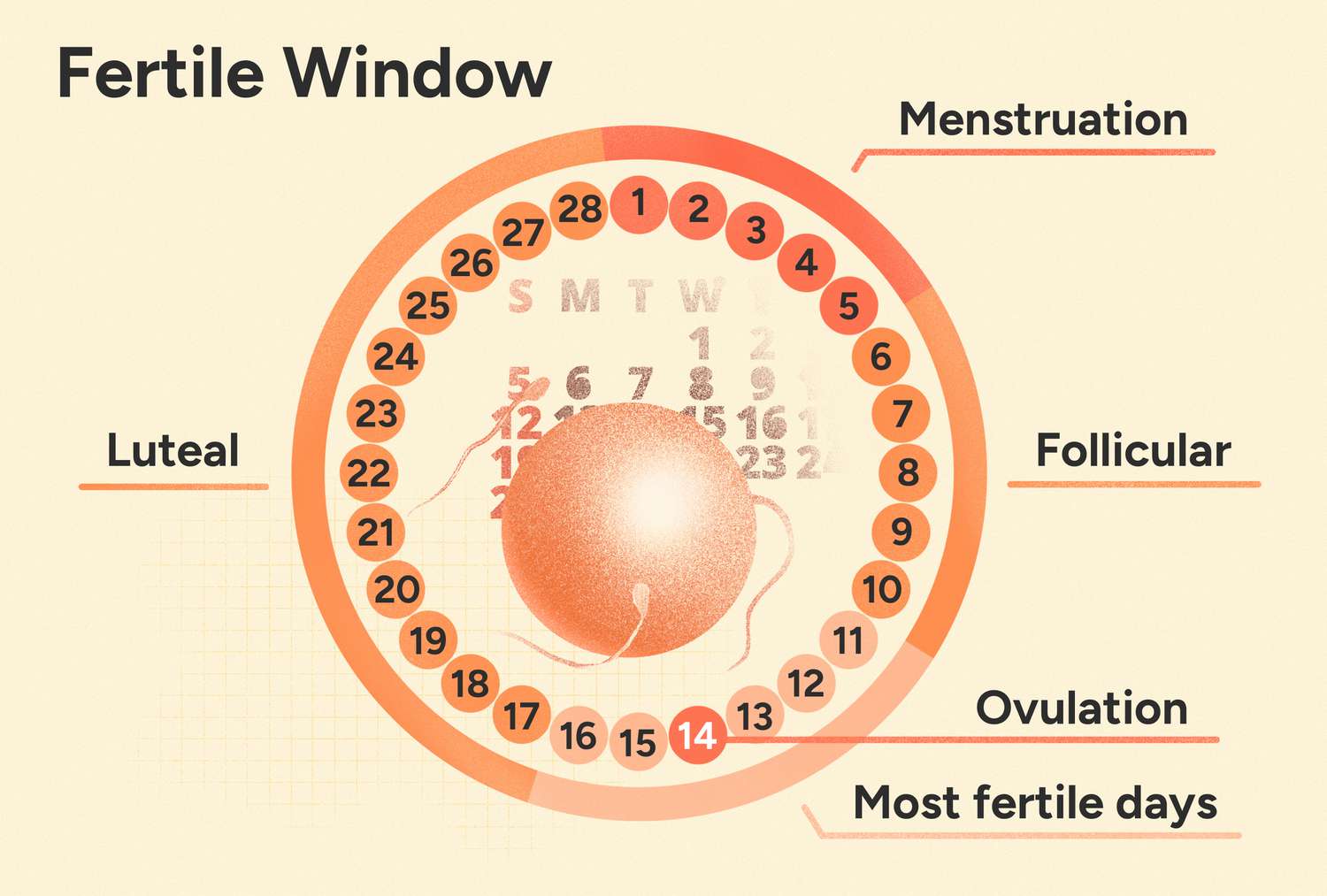An ovulation calculator for irregular periods estimates fertile days based on menstrual cycle variations. It helps identify the optimal time for conception.
For women with irregular periods, predicting ovulation can be challenging. Irregular cycles vary in length, making it harder to pinpoint fertile windows. An ovulation calculator takes these variations into account, providing a more tailored prediction. It factors in past cycle lengths and symptoms, offering a personalized fertility window.
This tool can be valuable for those trying to conceive, as it narrows down the most likely days for ovulation. Understanding your cycle, even with irregularities, can enhance your chances of successful conception. Using an ovulation calculator simplifies this process, making it easier to track and plan.

Credit: www.drvarshaliclinic.com
Introduction To Fertility Tracking
Understanding your fertility can help you plan or avoid pregnancy. An ovulation calculator can be a valuable tool. It helps predict ovulation days, which is crucial for conception. This tool is especially helpful for women with irregular periods. Let’s explore how to track ovulation and the challenges faced with irregular cycles.
Why Track Ovulation?
- Identify Fertile Windows: Tracking ovulation helps pinpoint the most fertile days.
- Plan Pregnancy: Knowing ovulation days increases the chances of conception.
- Monitor Reproductive Health: It provides insights into menstrual health.
- Address Issues: Irregular cycles can indicate underlying health problems.
Challenges With Irregular Periods
Irregular periods make it hard to predict ovulation. This unpredictability can cause stress and frustration. An ovulation calculator considers these variations and provides a more accurate prediction.
| Challenges | Impacts |
|---|---|
| Unpredictable Cycles | Hard to track fertile days |
| Long or Short Cycles | Ovulation days vary widely |
| Skipped Periods | Missed ovulation signs |
Using an ovulation calculator can simplify this process. It analyzes past cycle data to predict future ovulation. This tool offers a more reliable method for those with irregular cycles.
Basics Of Ovulation
Understanding ovulation is crucial for tracking fertility. This is especially true for those with irregular periods. Ovulation is the process where a mature egg is released from the ovary. This egg is then available for fertilization. Knowing when ovulation happens can help in planning or avoiding pregnancy.
The Ovulation Cycle Explained
The ovulation cycle is a monthly process. It involves the development and release of an egg. Typically, a menstrual cycle lasts about 28 days. But it can vary from woman to woman. For those with irregular periods, predicting ovulation can be tricky.
The cycle begins with the follicular phase. During this phase, the body prepares for ovulation. Follicle-stimulating hormone (FSH) helps follicles in the ovaries to mature. One of these follicles becomes dominant and releases an egg.
Next is the ovulation phase. This is when the mature egg is released. Luteinizing hormone (LH) surges and triggers this release. Ovulation usually occurs around day 14 of a 28-day cycle. For irregular cycles, this timing can vary.
Finally, the luteal phase begins. This phase follows ovulation. The empty follicle turns into the corpus luteum. It produces progesterone to prepare the uterus for a potential pregnancy. If the egg is not fertilized, the corpus luteum breaks down. This leads to menstruation, and the cycle starts over.
Signs Of Ovulation
Identifying signs of ovulation can help in tracking fertility. Even with irregular periods, certain signs can indicate ovulation.
- Cervical Mucus Changes: Cervical mucus becomes clear and stretchy, resembling egg whites.
- Basal Body Temperature: A slight increase in basal body temperature can indicate ovulation.
- Ovulation Pain: Some women experience mild pain or cramping on one side of the abdomen.
- Breast Tenderness: Hormonal changes can cause breast tenderness around ovulation.
- Increased Libido: Some women notice an increase in sexual desire during ovulation.
Using an ovulation calculator can also aid in predicting ovulation. This is particularly useful for those with irregular cycles. By tracking these signs, women can better understand their ovulation patterns.
Understanding Irregular Periods
Irregular periods can be a puzzle for many women. Understanding the causes and effects can provide clarity. This knowledge helps in managing your cycle better.
Common Causes
Irregular periods can stem from a variety of reasons. Hormonal imbalances often top the list. These imbalances can be due to conditions like polycystic ovary syndrome (PCOS) or thyroid issues.
Stress and lifestyle changes can also play a significant role. High-stress levels can disrupt your regular menstrual cycle. Sudden changes in weight, whether gain or loss, can affect your period as well.
Medications and underlying health conditions can cause irregularities too. Certain medications can interfere with hormone levels. Chronic illnesses or infections may also impact your menstrual cycle.
Impact On Fertility
Irregular periods can affect your ability to conceive. Ovulation may not occur regularly, making it hard to predict fertile windows. This unpredictability can lead to challenges in planning for pregnancy.
Using an ovulation calculator can help track your cycle. Even with irregular periods, it can provide useful insights. Tracking physical signs like basal body temperature or cervical mucus can complement the calculator’s data.
Maintaining a healthy lifestyle can improve your fertility. Balanced diet, regular exercise, and stress management can regulate your cycle. Consulting a healthcare provider can offer tailored advice and treatment options.
| Common Causes | Impact on Fertility |
|---|---|
| Hormonal Imbalances | Unpredictable Ovulation |
| Stress and Lifestyle Changes | Challenges in Planning Pregnancy |
| Medications | Tracking Cycle with Ovulation Calculator |
| Underlying Health Conditions | Physical Signs Tracking |
- Hormonal Imbalances: PCOS, thyroid issues
- Stress and Lifestyle Changes: Weight fluctuations, high stress
- Medications: Certain drugs affect hormones
- Underlying Health Conditions: Chronic illnesses, infections

Credit: www.ovusense.com
Ovulation Calculators And How They Work
An ovulation calculator helps predict the most fertile days in a woman’s cycle. It uses data about past periods to estimate the next ovulation. This is especially useful for women with irregular periods.
Ovulation calculators use different methods to predict fertile days. Some are simple, while others are more advanced. Let’s explore the differences.
Traditional Vs. Advanced Calculators
| Traditional Calculators | Advanced Calculators |
|---|---|
| Basic and easy to use | More accurate and detailed |
| Based on average cycle length | Incorporates various data points |
| Suitable for regular cycles | Better for irregular cycles |
Traditional calculators often require just the date of the last period. They then use the average cycle length to predict the next ovulation. This method works well for women with regular cycles.
Advanced calculators take into account several factors. These can include basal body temperature, cervical mucus changes, and hormone levels. They provide more accurate predictions, especially for women with irregular cycles.
Accuracy And Limitations
Even the best ovulation calculators have accuracy and limitations. They are based on patterns and averages. So, they can’t predict with 100% certainty.
- Traditional calculators are less accurate for irregular cycles.
- Advanced calculators require more detailed data.
- External factors like stress and illness can affect accuracy.
Despite these limitations, ovulation calculators are valuable tools. They help women understand their cycles better. This can aid in family planning and understanding reproductive health.
Choosing The Right Ovulation Calculator For Irregular Periods
Choosing an ovulation calculator for irregular periods can be challenging. Irregular cycles need more precision. A reliable calculator is essential for accurate results. This guide helps you find the best one. Let’s dive into the features you need to look for and the top recommendations.
Features To Look For
When selecting an ovulation calculator, there are key features to consider:
- Customizable Cycle Length: It should allow you to input varying cycle lengths. Irregular periods need flexibility.
- Data Tracking: The ability to log previous cycles is crucial. This helps in predicting future ovulation dates.
- Accuracy: Look for calculators that use advanced algorithms. These provide more precise ovulation windows.
- Notifications: Reminders for fertile windows and ovulation days are helpful.
- User-Friendly Interface: The app or tool should be easy to navigate. Simplicity ensures better tracking.
Top Recommendations
Here are some top ovulation calculators that cater to irregular periods:
- Clue: Known for its accuracy and ease of use. It offers detailed cycle tracking and predictions.
- Ovia: This app provides personalized insights. It adapts to your unique cycle patterns.
- Flo: Flo is popular for its comprehensive tracking features. It includes reminders and health insights.
- Fertility Friend: Ideal for those who want advanced tracking. It offers charts, graphs, and detailed analysis.
- Glow: Glow stands out with its community support. It also provides accurate ovulation predictions.
Selecting the right ovulation calculator can make a big difference. Look for the features that suit your needs best. The recommendations listed above are trusted by many users. Choose one and start tracking today.

Credit: www.motherhoodindia.com
Supplementing With Other Fertility Tracking Methods
Using an ovulation calculator for irregular periods can be challenging. Combining it with other fertility tracking methods can improve accuracy. These methods can provide a more comprehensive understanding of your fertility window.
Basal Body Temperature Monitoring
Basal Body Temperature (BBT) monitoring helps track ovulation. Your BBT is your body’s lowest temperature at rest. A slight increase in BBT can indicate ovulation.
To track BBT, follow these steps:
- Take your temperature each morning before getting out of bed.
- Use a basal thermometer for accuracy.
- Record the temperature daily.
A temperature rise of about 0.5 to 1 degree Fahrenheit suggests ovulation. You can use a chart to visualize these changes.
Cervical Mucus Charting
Cervical mucus changes throughout your cycle. Tracking these changes can help predict ovulation. Fertile mucus is clear, stretchy, and egg white-like.
To chart cervical mucus, follow these steps:
- Check mucus daily, preferably at the same time.
- Record the consistency and appearance.
- Look for patterns indicating fertility.
Charting can help you understand your cycle better. Combining this method with BBT can improve accuracy. You get a clearer picture of your fertile days.
Lifestyle Changes To Improve Fertility
Many women struggle with irregular periods, making it tough to predict ovulation. Lifestyle changes can help improve fertility and make it easier to conceive. This section discusses essential lifestyle changes that can enhance fertility.
Diet And Nutrition
A balanced diet is crucial for reproductive health. Eating a variety of fruits, vegetables, lean proteins, and whole grains can boost fertility. Avoid processed foods and sugary snacks. These can negatively impact your hormonal balance.
Include foods rich in antioxidants. Antioxidants combat oxidative stress, which can damage reproductive cells. Some antioxidant-rich foods are:
- Blueberries
- Spinach
- Nuts
- Dark chocolate
Omega-3 fatty acids are also essential. They help regulate hormones and improve egg quality. You can find Omega-3s in:
- Salmon
- Chia seeds
- Walnuts
- Flaxseeds
Stay hydrated. Drink at least eight glasses of water a day. Proper hydration supports overall reproductive health.
Stress Management
Stress can impact your fertility. High levels of stress hormones can disrupt ovulation. Managing stress is essential for improving fertility.
Practice mindfulness. Mindfulness techniques like meditation and deep breathing can reduce stress levels. Set aside at least 10 minutes each day for these practices.
Exercise regularly. Physical activity releases endorphins, which are natural stress relievers. Aim for at least 30 minutes of moderate exercise, such as:
- Walking
- Yoga
- Swimming
- Cycling
Get enough sleep. Poor sleep can increase stress and affect hormonal balance. Aim for 7-9 hours of sleep each night.
Engage in hobbies. Activities you enjoy can distract you from stress and improve your mood. Consider hobbies like:
- Reading
- Gardening
- Painting
- Cooking
These lifestyle changes can help regulate your menstrual cycle and improve fertility. An ovulation calculator for irregular periods can be more effective with these adjustments.
When To Seek Professional Help
Understanding ovulation can be challenging, especially with irregular periods. Sometimes, using an ovulation calculator may not be enough. In such cases, seeking professional help becomes crucial. Here’s when and how to seek expert advice.
Consulting A Fertility Specialist
If you have been trying to conceive for more than a year, it might be time to see a fertility specialist. A specialist can offer personalized advice and treatment options. They can help identify the underlying issues affecting your ovulation cycle.
Tracking your cycle for several months is a good practice before consulting a specialist. This information can provide valuable insights. A specialist might recommend lifestyle changes, medications, or more advanced fertility treatments.
Additional Diagnostic Tests
Sometimes, irregular periods are symptoms of underlying health issues. Various diagnostic tests can help identify these problems. Below is a table listing common diagnostic tests and their purposes:
| Test | Purpose |
|---|---|
| Blood Tests | Check hormone levels and thyroid function |
| Ultrasound | Examine ovaries and uterus for abnormalities |
| Hysterosalpingogram (HSG) | Check fallopian tubes for blockages |
These tests can provide a clearer picture of your reproductive health. Consult your specialist to understand which tests are necessary for you.
- Blood Tests: Evaluate hormone levels
- Ultrasound: Check ovaries and uterus
- HSG: Examine fallopian tubes
Regular consultations and follow-ups can significantly increase your chances of conceiving. Early intervention is always better.
Frequently Asked Questions for ovulation calculator for irregular periods
How To Calculate Ovulation With Irregular Periods?
Track your menstrual cycle for several months. Use ovulation prediction kits or monitor cervical mucus changes. Consult a doctor for personalized advice.
How Do You Calculate Safe Days For Irregular Cycles?
Calculate safe days by tracking your cycles for 6 months. Identify the shortest and longest cycles. Subtract 18 from the shortest cycle and 11 from the longest. The days outside this range are considered safe. Always consult a healthcare professional for personalized advice.
When To Take Ovulation Test With An Irregular Cycle?
Start testing a few days after your period ends. Test daily until you detect an LH surge.
What Is Considered Irregular Ovulation?
Irregular ovulation occurs when a woman’s menstrual cycles vary widely in length. This can affect fertility and menstrual regularity. Factors include stress, weight changes, and medical conditions. Consult a healthcare provider for diagnosis and treatment options.
What Is An Ovulation Calculator?
An ovulation calculator predicts your fertile window based on menstrual cycle data.
How To Use An Ovulation Calculator?
Input your cycle length and the first day of your last period.
Can An Ovulation Calculator Help Irregular Periods?
Yes, it can provide an estimated fertile window, but results may vary.
How Accurate Are Ovulation Calculators?
They offer estimates and may not be 100% accurate, especially with irregular cycles.
When Should I Use An Ovulation Calculator?
Use it regularly, especially when tracking your menstrual cycle or planning pregnancy.
Can Stress Affect Ovulation?
Yes, stress can delay or disrupt ovulation, affecting your cycle.
Conclusion of ovulation calculator for irregular periods
Using an ovulation calculator can help manage irregular periods effectively. Track your cycle to improve your chances of conception. This tool simplifies predicting ovulation, even with unpredictable cycles. Start using an ovulation calculator today to better understand your fertility and cycle patterns.
It’s a step towards achieving your pregnancy goals.
Visit our other website to see/buy/read more women best prodcuts.




